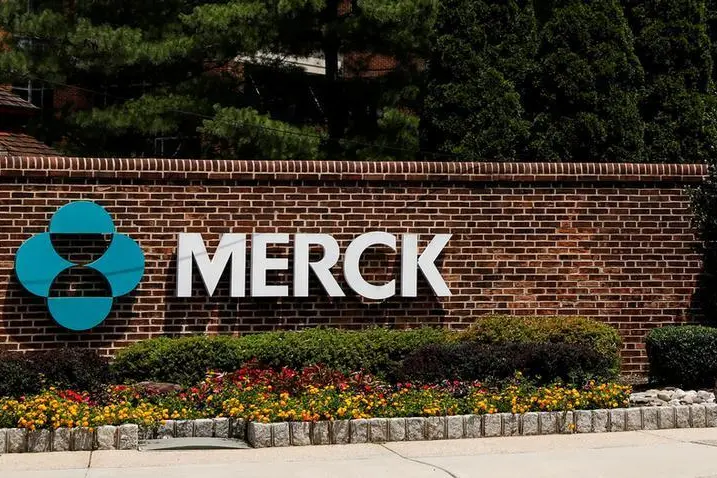PHOTO
TOKYO - Drugmaker Merck will pay Daiichi Sankyo $5.5 billion to jointly develop three of its candidate cancer drugs, they said, in a deal that could be worth up to $22 billion to the Japanese firm depending on the success of the cell-targeting therapies.
Shares of Daiichi Sankyo closed up 14.4% in Tokyo to post their steepest gain in more than a year, while those of Merck rose 1.6% in morning trading.
The company is aiming for at least 900 billion yen ($6 billion) of revenue from its oncology business in the fiscal year ending March 31, 2026, which would represent about a five-fold increase over a three-year period.
The deal is a "big positive and much needed for Daiichi Sankyo", said Tina Banerjee, a healthcare analyst who publishes on the Smartkarma platform. "This raises expectations from Daiichi's oncology drug pipeline."
The three drug candidates to be developed with Merck belong to the class known as antibody drug conjugates (ADC) and are in various stages of clinical development for the treatment of multiple solid cancer tumors. Unlike conventional chemotherapy, which can kill healthy cells, ADCs are designed to target only cancer cells, potentially reducing damage to normal cells.
"One of the changes in the external environment is intensifying competition in ADC development," Daiichi Sankyo CEO Sunao Manabe said, describing the company's decision to seek a partner.
The drug candidates - patritumab deruxtecan, ifinatamab deruxtecan and raludotatug deruxtecan - have "multi-billion dollar worldwide commercial revenue potential for each company" by the mid-2030s, the two companies said.
The companies will jointly develop and potentially commercialise the drug candidates worldwide, except in Japan, where Daiichi Sankyo will maintain exclusive rights.
Daiichi Sankyo will be solely responsible for manufacturing and supply.
With the deal, Merck "gains access to one of the strongest leaders in the ADC space," BMO Capital Markets analyst Evan Seigerman said.
The deal will also help expand Merck's cancer drug portfolio, especially when patents on its top-selling Keytruda start to expire at the end of the decade, the analyst added.
Merck will pay Daiichi Sankyo $4 billion up front and $1.5 billion in continuation payments over the next two years. Merck may make additional payments of up to $16.5 billion, contingent on future sales milestones, or $5.5 billion for each product.
Daiichi Sankyo has six ADC candidates in its pipeline, including two being jointly developed with AstraZeneca. This week, a data abstract on a late-stage trial of datopotamab deruxtecan it is developing with AstraZeneca disappointed some analysts.
Under the deal announced on Friday, Merck will take a pretax charge of $5.5 billion, or about $1.70 per share, resulting in a reduction in fourth-quarter and full-year 2023 results, the companies said.
Merck's investment in the pipeline assets and costs to finance the deal will reduce earnings per share by about 25 cents in the first 12 months after the closing of the transaction, they said.
The impact on Daiichi Sankyo's results would be announced in the future, according to the joint statement.
(Reporting by David Dolan and Rocky Swift in Tokyo and Kanjyik Ghosh and Pratik Jain in Bengaluru; editing by Miyoung Kim, Jamie Freed, Gerry Doyle and Anil D'Silva)





















